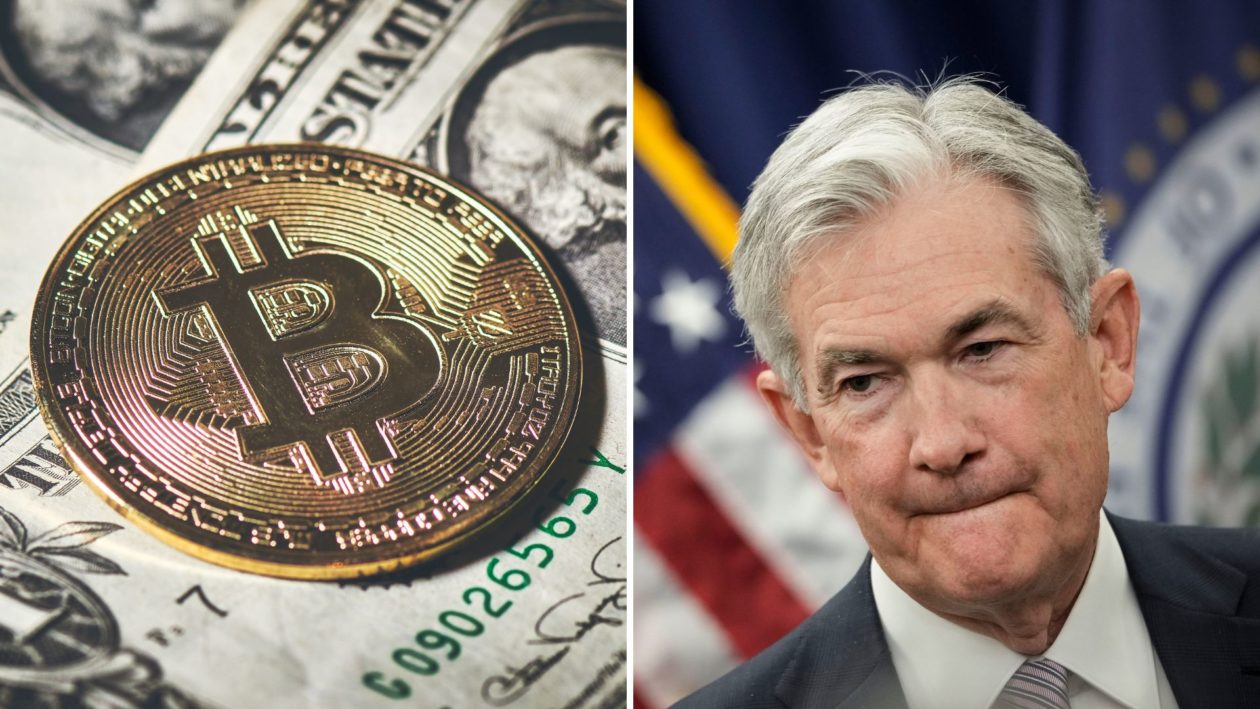Cryptocurrency markets have been on a roller coaster since the collapse of the Terra stablecoin last month, but the bigger scare now in crypto land and other financial markets is global inflation picking up speed, suggesting the white-knuckle ride is set to continue.
While most major tokens rose roughly 5% overnight, prices during Asia trading quickly shed those gains, with Bitcoin losing 5.5% and Ethereum 11%. Bitcoin has lost some 55% of its value since the start of the year to trade at US$20,592 at publishing time. The non-fungible token (NFT) market hasn’t escaped the slump.
Just last week, markets had priced in a 50 basis point increase in interest rates by the U.S. Federal Reserve to rein in inflation at its monthly meeting today. But the speculation now is the Fed may raise as much as 100 basis points, following Friday’s Consumer Price Index (CPI) showing year-on-year May inflation at 8.6% in the U.S. — its highest in 40 years.
Read more: Bitcoin, Ether bear brunt of market selloff amid fears of Fed rate increase
But the Fed faces a difficult balancing act to avoid driving the economy into a recession; with billions of dollars in bonds on its books from quantitative easing, moving too fast will cause debt repayments to balloon.
“The Fed wants to try and show steady progress rather than bring in a moment of shock and awe to the market,” said Andrew Sullivan, a market analyst and former equities broker. “Because as we saw on Friday if that happens, the markets tend to crash and that’s not good for anybody.”
Markets took a battering over the weekend following the release of the CPI data, with the crypto market cap dropping roughly 25% to fall below US$1 trillion for the first time since January 2021, according to CoinMarketCap data.
Stock markets were also hit hard, with the S&P 500 dropping 3.9% on Monday in confirmation it was officially in a bear market.
Raising rates is the main tool available to central banks to combat rising inflation by increasing the cost of borrowing to cool an overheated economy. While markets are focused on what Fed Chair Jerome Powell will do today, the focus will also be on what he indicates lies ahead.
“A lot of it will come down to however Powell explains it, he’s been very good at trying to give forward guidance so that the markets don’t get upset,” Sullivan said.
Crypto algorithmics
Crypto markets have other specific concerns.
Investors still stunned by the estimated US$40 billion Terra stablecoin implosion face the threat of a repeat performance as another algorithmic stablecoin, USDD, lost its peg to the U.S. dollar. Losing dollar parity kicked off the chain of events that led to the Terra debacle in early May.
In an attempt to regain USDD’s parity to the U.S. dollar, the TRON Decentralized Autonomous Organization (DAO) said it has added US$500 million in USDC to its reserves which has been off its peg for about two days.
Read more: TRON founder pledges US$2B defense fund after USDD stablecoin loses dollar parity
TRON founder Justin Sun said on Monday he is setting up a US$2 billion fund to defend the coin, but at the time of publishing USDD was trading at US$0.9635.
If any more turmoil was needed, crypto staking and lending platform Celsius Network paused all users’ withdrawals, swaps and transfers on Monday, citing “extreme market conditions.”
The network said it was working as quickly as possible to address the issue, though it didn’t say when transactions will resume.
Whacked Apes
The crypto roller coaster is also taking its toll on the non-fungible token (NFT) market, with sales figures for June dropping steeply.
Sales hit US$3 billion in May, but halfway through June, sales are yet to reach US$500 million, according to NFT data aggregator CryptoSlam.
The floor price for a Bored Ape Yacht Club NFT dropped below US$100,000 for the first time since August 2021. The current floor price is at 78.5 ETH, or roughly US$88,500.
“I don’t know anybody right now that is actually shopping for NFTs,” Yehudah Petscher, NFT relations strategist for CryptoSlam, told Forkast in an interview. “Most NFT projects I don’t believe are going to survive this bear market,” he said. “I think this is the big one.”
What about Bitcoin? Ben Caselin, head of research at crypto exchange AAX, told Forkast he remains bullish on Bitcoin as it has proven its fundamentals are sound time and time again.
The war in Ukraine has proven it is resistant to government controls, he says, while its inflation hedge narrative will win out over the long term, especially after periods of heightened inflation.
“We will see some dominance return to Bitcoin and we will see some altcoins die off,” Caselin said, “and rightfully so.”





